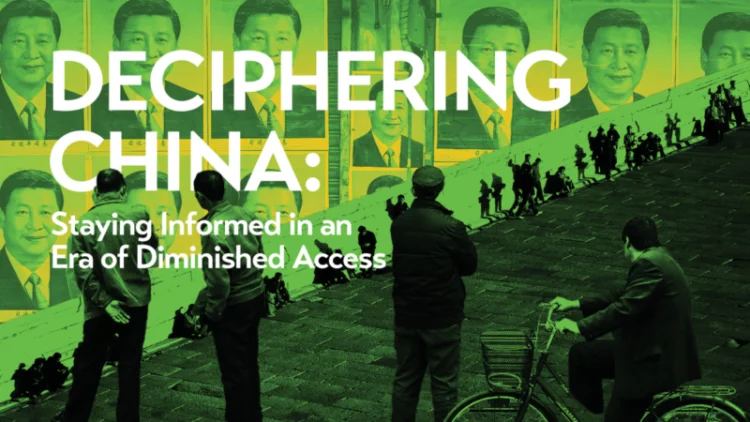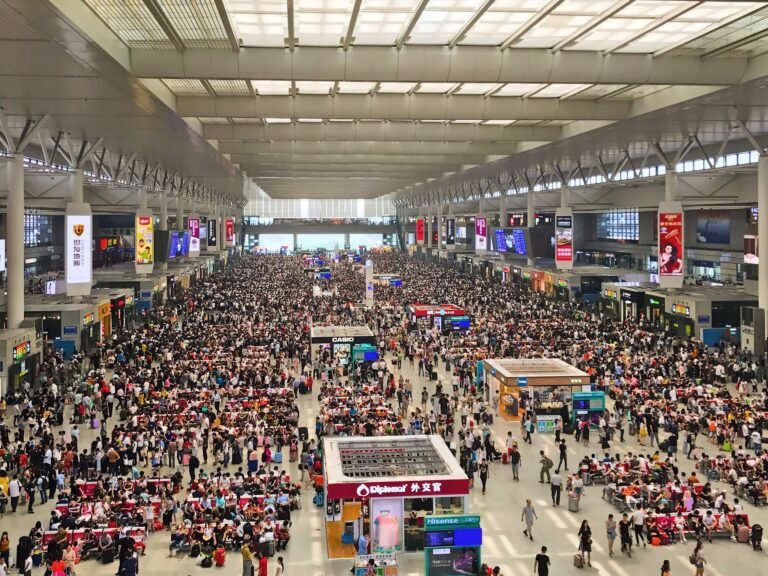Image credit: Asia Society Australia
Article: Asia Society Australia, supported by the National Foundation for Australia-China Relations- by Asia Society Australia Director, Programs, James Scullin and Non-Resident Senior Policy Fellow, Dr. Bates Gill
Asia Society Australia’s “Deciphering China” workshop on Tuesday 11 Feb 2025 examined how academia, think tanks, business, and the media can collaboratively enhance their understanding of China amid increasingly restricted access to information.
This is a precied version: full article HERE+
The Shrinking Space for China Analysis
Australia has long nurtured a tradition of respected China scholars, yet understanding China has never been easy due to the Chinese Communist Party’s (CCP) strict control over information. While this challenge isn’t new, it has become more complex due to new laws, tighter regulations, and political shifts that restrict access to information and limit foreign engagement.
Mounting Legal and Regulatory Barriers
Recent Chinese legislation—such as the Foreign NGO Law and the National Intelligence Law—has steadily eroded access for researchers, journalists, and businesses. Foreign journalists now face tighter restrictions, including visa difficulties and surveillance. Many Chinese journalists, disillusioned by growing censorship and harassment, have left journalism altogether, further limiting domestic insight.
Academic Research Constraints
Western academics face a narrowing research environment in China. Fieldwork is increasingly difficult due to shrinking archives, growing suspicion of foreign researchers, and warnings to Chinese collaborators about “foreign spies.” Safety concerns, data security risks, and visa uncertainties deter scholars from conducting in-country research. Younger researchers especially struggle to gain firsthand understanding, particularly beyond China’s major cities, which risks producing decontextualized analysis.
University-based China research also suffers from shrinking access to Chinese counterparts and rising self-censorship. Archives have become harder to access, and documents are more frequently classified as sensitive or secret. Bilateral tensions between China and Australia further hinder researcher access, as Chinese interlocutors withdraw during politically sensitive times.
Impacts on Business Understanding
For businesses, especially small and medium enterprises (SMEs), geopolitical risk is a growing concern. Many firms lack sufficient China literacy, leading to either risk aversion or costly missteps. Understanding China’s opaque regulatory environment, shifting nationalistic sentiment, and restricted communication tools like WeChat is increasingly difficult without deep local insight.
Trade and investment data are publicly available but hard to interpret without contextual understanding. Meanwhile, China’s data security laws and vague definitions of “sensitive” information obstruct the flow of information between foreign firms and their Chinese affiliates. Rising nationalism, symbolized by patriotic displays at partner firms, and repatriation concerns further undermine business confidence.
Diminishing Role of Journalists
The number of experienced foreign journalists in China has dropped dramatically, and those remaining face significant hurdles: limited access, surveillance, source protection issues, and difficulties verifying facts. Meanwhile, China has filled some of the vacuum with foreign influencers and pro-Beijing content creators who operate under tight state control.
Foreign media remains vital for reporting on issues ignored by Chinese outlets, such as human rights abuses or political developments. Yet the increased risks, censorship, and surveillance mean that journalists rely more on satellite imagery and open-source data—tools that are helpful, but often lack nuance without local context.
Alternative Methods and Innovation
Despite these restrictions, researchers have developed new methods to study China remotely. Open-source intelligence, satellite imagery, and analysis of government procurement data can reveal insights. However, these must be interpreted carefully, ideally with input from informed local sources.
“Track-two” dialogues—informal meetings between scholars or former officials—remain useful. Observing China-related developments from third countries also offers more neutral grounds for gathering insights and maintaining relationships with Chinese contacts.
Challenges at Home
Within Australia, security-driven scrutiny of researchers and students has had a chilling effect, deterring some from pursuing China-related careers. Universities face burdensome compliance requirements for foreign collaboration, and media coverage of China often lacks depth due to limited expertise and the risks facing reporters, especially those of Chinese descent.
Funding shortfalls limit study opportunities, and there is no dedicated national strategy for engaging with China, in contrast to existing approaches to Southeast Asia.
Building the Next Generation of China Experts
To ensure long-term understanding, Australia must invest in cultivating the next generation of China-watchers. This includes offering clearer career pathways, fostering academic mentorship, and encouraging nuanced discourse without political backlash. Programs like the New Colombo Plan help, but more is needed to create an environment where scholars can engage meaningfully with China.
Conclusion
Though the space for understanding China is narrowing, collaboration between academia, business, and media can keep the flow of information alive. Combining traditional knowledge with innovative research methods—and supporting emerging analysts—will be key to maintaining Australia’s ability to navigate the complexities of China today.













